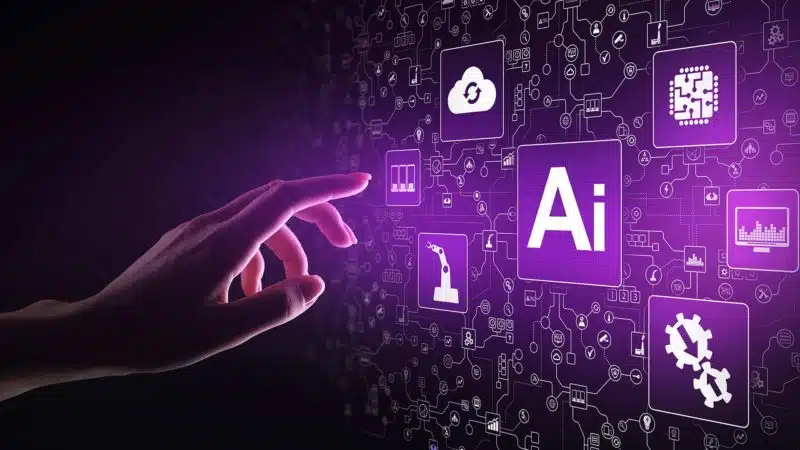Search engines use complex algorithms to crawl and index pages and rank them based on their relevance and authority. AI is transforming these processes by making them more accurate and personalized.
As a result, SEO professionals need to understand how AI impacts their work. Read on to learn how to harness the power of AI to improve your search engine rankings:
Visual Search
While generative AI tools may make it seem like artificial intelligence is a new toy that SEOs are just beginning to play with, the truth is that this technology has been influencing search engine marketing for years. Almost every search engine on the planet is powered by analytical AI. Truly, AI is the future of search, which helps engineers sift through massive amounts of data and pull relevant insights.
The subset of AI known as machine learning involves teaching machines to learn, with scientists providing them with the data they need. Once the machines have learned the necessary knowledge, they can process the information independently. This enables them to understand queries and user intent, plus filter and rank content, delivering results that help users with their searches.
Visual search is a form of AI that lets people search for things using images instead of text or voice commands. It uses computer vision technology to identify objects in a picture and determine what type of content that object is, then serves up related results. It also uses augmented reality to overlay contextual information on the image or video it’s analyzing, making it easy for the searcher to find what they’re looking for.
Some visual search tools allow customers to point their camera at an object and then shop for it on the website or mobile app. This feature has been very successful for the retailer, allowing them to go directly from inspiration to gratification with their purchase. It can be a great way to expand your sales and build brand loyalty with your clients.
Machine Learning
Search engines like Google use algorithms to crawl and index pages, then rank them based on relevance. These algorithms constantly rely on machine learning to improve as they analyze data from previous searches and look for patterns. The more these algorithms learn, the better they understand user intent and deliver relevant results.
AI also transforms search engine marketing, allowing for more sophisticated targeting and personalization. For instance, retailer Forever 21 recently launched an app that uses visual and voice searching to allow customers to search for clothing based on photos they take of themselves. This search type is increasingly popular among consumers and will only grow as AI advances.
Another way that AI is changing search engine marketing is through predictive analytics. This enables businesses to identify trends, predict user behavior, and update SEO algorithms. This helps them stay ahead of the curve and adapt their strategies accordingly.
Finally, generative AI is one of the newest forms of artificial intelligence. It enables businesses to automate time-consuming tasks and produce high-quality content at scale. This type of AI can perform various functions, including researching and analyzing keywords, writing ad headlines that include target terms and comply with character limits, and generating SEO-optimized content—from meta descriptions to entire blog post drafts.
Natural Language Processing
AI’s natural language processing aspect can be used for sentiment analysis, text classification, and translation. This can benefit search engine optimization, allowing digital marketers to understand users’ intent with search queries better. This, in turn, helps them to create content that satisfies that user intent.
Another way that AI is transforming the search engine is by allowing search engines to provide more personalized results for individual users. This is done using information such as search history, location, and other factors to deliver customized results.
Lastly, AI also transforms the search engine, allowing it beyond text-based inputs like keywords and phrases. With voice and visual search engines becoming more popular, AI can interpret these searches by understanding the context and user intent behind the query. This is a major shift away from the days of keyword stuffing.
As search engine algorithms continue to evolve, the role of artificial intelligence in SEO will only grow. This is good news for small businesses seeking an edge over their competition. By incorporating AI into their SEO workflow, digital marketers can save time and effort by having machines do the tedious work.
Local Search
Search engines have long been leveraging analytical AI to bolster the algorithms they use to rank websites. Generative AI will power the upcoming generation of search engines. This will allow search engines to dispense more personalized results based on user history and geographic location.
One example of generative AI is Google’s recently announced search lab, which will test the effects of generative AI on search engine results. The lab will accept people from around the U.S. to join a waitlist to try the new feature.
The search lab will also utilize an AI which will be able to understand natural language and determine search intent. It is expected to be able to answer queries like “What are the symptoms of PTSD?” with informational results and links to local treatment providers.
Local search algorithms explore a neighborhood of candidate solutions to find an optimal solution. They choose the nearest neighbor that meets a certain criterion or a set of criteria. Often, several neighbor solutions meet the criterion, so the search algorithm will take the most promising one, which is known as greedy search. This process is repeated until a stopping criterion is met or a specified number of iterations are completed.



